Birds are among the most musical creatures on Earth. Their songs can be heard in every corner of the world, from the tropical rainforests to the polar regions.
But why do birds sing in the morning, before the sun rises and before most humans are awake? What is the purpose and meaning of their dawn chorus?
In this article, we will explore the reasons why birds sing in the morning, how they produce their songs, which birds are the most vocal, when and where you can hear them, and how you can enjoy and appreciate their melodies. We will also answer some frequently asked questions about this topic.
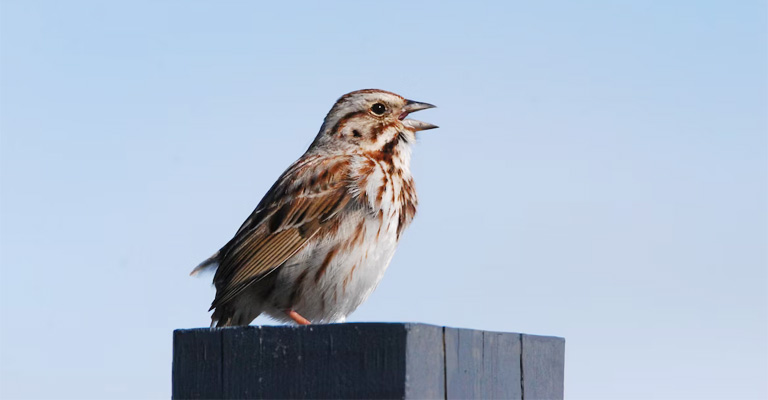
Reasons Why Birds Sing in the Morning
Birds sing for various reasons, such as to attract mates, defend territories, communicate with each other, or express their emotions. However, singing in the morning has some specific advantages and functions that make it more common and prominent than at other times of the day. Here are some of them:
To establish and maintain territories:
Birds sing in the morning to announce their presence and claim their territories. By singing loudly and persistently, they deter potential rivals from intruding or competing for resources such as food, water, or nesting sites. They also signal to potential mates that they are strong, healthy, and well-fed and that they have suitable territory to offer.
To attract mates
Birds sing in the morning to attract mates and initiate courtship. By singing complex and diverse songs, they showcase their vocal skills and genetic quality and appeal to the preferences of females. They also use their songs to synchronize their reproductive cycles with their partners and to coordinate their breeding activities such as nest building or feeding.
To avoid predators
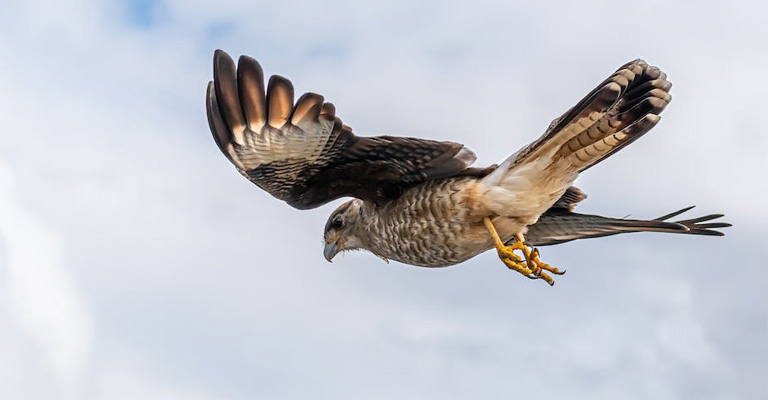
Birds sing in the morning to avoid predators and reduce the risk of being eaten. By signing when it is still dark or dim, they make it harder for predators to locate them visually. They also use their songs to warn each other of potential threats or to mob predators together.
To take advantage of optimal conditions
Birds sing in the morning to take advantage of optimal conditions for sound transmission and reception. By signing when the air is still and quiet, they can make their songs travel farther and clearer than at other times of the day. They also benefit from less interference from other sounds or noises that may mask or distort their songs.
To express their emotions
Birds sing in the morning to express their emotions and moods. By signing after a long night of rest and fasting, they may convey their joy, excitement, or relief. They may also sing to regulate their body temperature, hormones, or metabolism.
How Birds Produce Their Songs
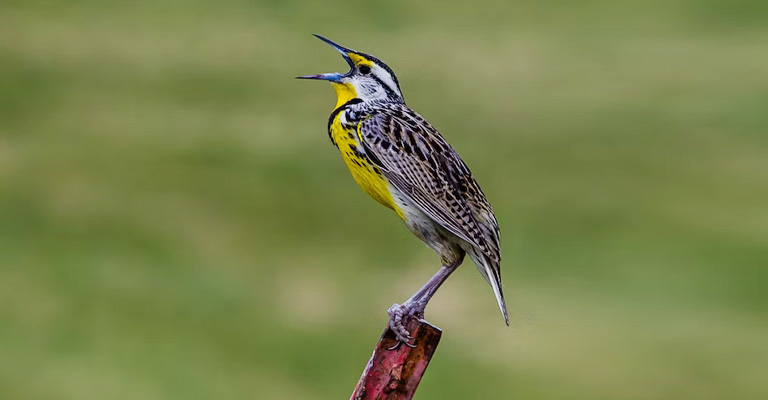
Birds produce their songs by using a specialized organ called the syrinx, which is located at the base of their trachea (windpipe).
The syrinx consists of two pairs of membranes that vibrate when air passes through them. The vibrations are modulated by muscles that control the tension and shape of the membranes.
Unlike humans, who have only one set of vocal cords in their larynx (voice box), birds have two sets of vocal cords in their syrinx.
This allows them to produce two different sounds at the same time, creating complex harmonies and melodies. Some birds can even mimic other sounds or voices that they hear in their environment.
The songs that birds produce vary widely depending on their species, sex, age, season, location, and individual characteristics. Some birds have simple and repetitive songs, while others have elaborate and variable songs. Some birds sing only during certain periods of the year or day, while others sing all year round or throughout the day.
Which Birds Sing in the Morning
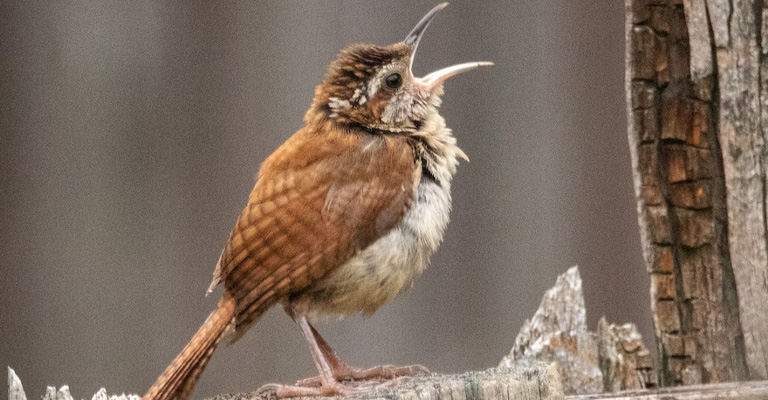
Almost all birds can produce some kind of vocalization, such as calls, chirps, whistles, clicks, or screeches. However, not all birds can produce true songs, which are defined as complex and learned vocalizations that are used for communication or social purposes.
Among the birds that can produce true songs, some are more likely to sing in the morning than others. These include:
Songbirds
These are a large group of birds that belong to the order Passeriformes, which comprises about half of all bird species.
They are characterized by having a well-developed syrinx that enables them to produce a wide range of sounds and songs. Some examples of songbirds are robins, blackbirds, thrushes, wrens, warblers, tits, sparrows, finches, and starlings.
Parrots
These are a group of birds that belong to the order Psittaciformes, which comprises about 400 species. They are characterized by having a curved beak, zygodactyl feet (two toes pointing forward and two backward), and colorful feathers.
They are also known for their intelligence and ability to mimic sounds and voices. Some examples of parrots are macaws, cockatoos, parakeets, lorikeets, and budgerigars.
Hummingbirds
These are a group of birds that belong to the order Apodiformes, which comprises about 360 species. They are characterized by having a long and slender bill, a small and compact body, and iridescent feathers.
They are also known for their ability to hover in the air and to feed on nectar from flowers. Some examples of hummingbirds are ruby-throated hummingbirds, Anna’s hummingbirds, rufous hummingbirds, and violet-crowned hummingbirds.
When and Where to Hear the Dawn Chorus
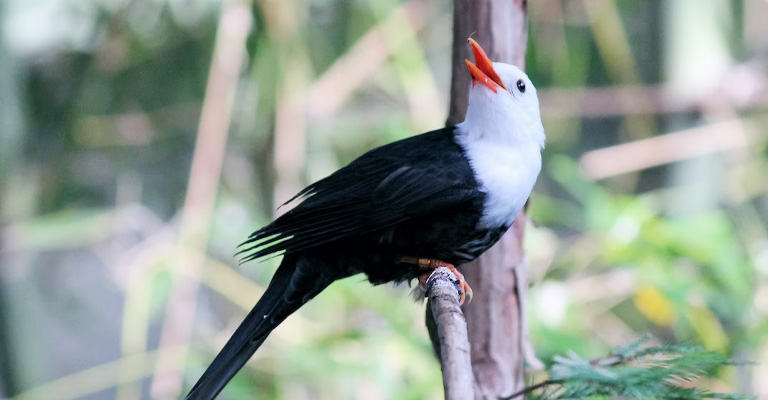
The dawn chorus is the collective singing of birds that occurs in the early morning, usually before sunrise. It is one of the most spectacular and enjoyable natural phenomena that anyone can experience.
The dawn chorus can vary in timing, duration, intensity, and composition depending on several factors, such as:
Season
The dawn chorus is most prominent and frequent during the spring and summer months when birds are in their breeding season and have more reasons to sing.
It is less noticeable and frequent during the autumn and winter months when birds are in their non-breeding season and have fewer reasons to sing.
Latitude
The dawn chorus is more pronounced and longer at higher latitudes, where the days are longer and the nights are shorter during the spring and summer months.
It is less pronounced and shorter at lower latitudes, where the days are more or less equal throughout the year.
Weather
The dawn chorus is more likely and louder on clear and calm days when the temperature is mild and the air is still. It is less likely and quieter on cloudy and windy days when the temperature is cold or hot and the air is turbulent.
Habitat
The dawn chorus is more diverse and complex in habitats that have more species and types of birds, such as forests, wetlands, or grasslands.
It is less diverse and complex in habitats that have fewer species and types of birds, such as deserts, mountains, or urban areas.
To hear the dawn chorus, you need to be in a place where there are enough birds to produce a noticeable sound. You also need to be awake at the right time, which can vary from an hour before sunrise to an hour after sunrise depending on the location and season.
Tips to Enjoy the Dawn Chorus Are
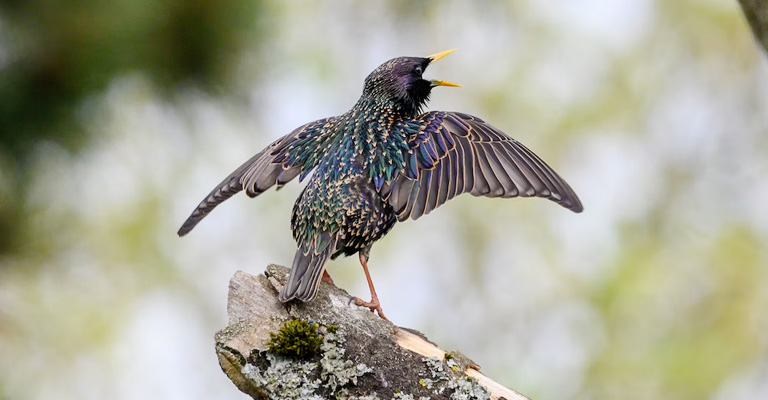
Plan Ahead
Check the weather forecast, sunrise time, and bird activity in your area before you decide when and where to go. Choose a day that is clear and calm, a time that is around 30 minutes before or after sunrise, and a place that has a variety of birds.
Prepare Well
Dress appropriately for the weather, bring a flashlight or headlamp if it is dark, bring binoculars or a camera if you want to see the birds better, bring snacks or drinks if you need them, and bring a field guide or an app if you want to identify the birds.
Be Quiet
Avoid making any noise or movement that may disturb or scare away the birds. Turn off your phone or any other device that may make sounds. Stay still and silent as much as possible. Listen carefully and attentively to the sounds around you.
Be Respectful
Respect the birds’ privacy and space. Do not approach them too closely or interfere with their activities. Respect other people’s rights and property. Do not trespass or litter. Respect nature’s beauty and fragility. Do not harm or damage anything.
Frequently Asked Questions
No, not all birds sing in the morning. Some birds sing only at night, such as owls, nightjars, or mockingbirds. Some birds sing only during certain seasons or times of day, such as cuckoos, woodpeckers, or swallows. Some birds do not sing at all, such as vultures, ostriches, or penguins.
Yes, some female birds sing in the morning. Although most of the singers are males who use their songs to attract mates or defend territories, some females also join in for various reasons. For example, some females sing to duet with their mates or to signal their readiness to mate. Some females sing to compete with other females or to assert their dominance. Some females sing to help their mates locate them or to coordinate their activities.
Birds learn to sing in the morning by listening to and imitating their parents, siblings, or other members of their species. They also learn by trial and error, by adjusting their songs according to the feedback they receive from other birds. Birds can also learn new songs from other sources, such as other species, artificial sounds, or human voices.
Birds recognize their own songs through a process called auditory feedback. They compare the sounds they produce to a neural template in their brain, allowing them to adjust and maintain their unique vocalizations.
Yes, there can be differences in bird songs between urban and rural areas. Urban environments often introduce new acoustic challenges, such as increased background noise, which can affect the structure and content of bird songs.
Conclusion
Birds singing in the morning is one of the most beautiful and fascinating natural phenomena that anyone can experience.
It is a result of various biological, ecological, and environmental factors that influence the behavior and communication of birds. By understanding why birds sing in the morning, how they produce their songs, which birds are the most vocal,
when and where you can hear them, and how you can enjoy and appreciate them, you can enrich your knowledge and appreciation of nature and wildlife.